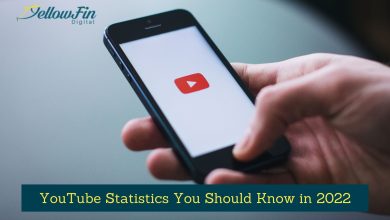Digital Marketing Audit vs. Website Audit: What’s the Difference and Why You Need Both

Digital marketing audits and website audits serve different but equally important purposes. A digital marketing audit evaluates strategies and execution across all areas of marketing including content, search, social media, advertising, partnerships, resources and analytics. It determines how effectively marketing supports key business goals to optimize impact and return on investment.
A website audit focuses specifically on a single website, analyzing pages, architecture, information architecture, navigation, UX, load speed, visual design and functionality. It ensures an easy, engaging user experience across the entire site that facilitates goals like generating traffic, converting leads or building brand authority.
Audits are essential for digital marketing excellence and progress. They provide objective, data-driven insights into what’s working, what could be improved and new opportunities for optimization. By identifying strategic alignment issues, wasted resources or underdeveloped channels, audits drive focus and alignment while eliminating inefficiencies hampering growth or ROI. Regular re-evaluation keeps pace with best practices, technologies, metrics and business changes.
What is a Digital Marketing Audit?
A Digital Marketing Audit is a comprehensive analysis of a company’s online marketing strategies and tactics. It examines how effectively the business is leveraging digital channels to achieve its goals, and identifies areas for improvement. The audit can cover multiple areas such as social media, website performance, SEO, paid advertising, email marketing, and more.
The primary purpose of a digital marketing audit is to evaluate the effectiveness of a company’s online marketing efforts and identify opportunities to improve performance. The benefits of a digital marketing audit are numerous, including increased ROI, improved customer engagement, and better brand awareness. It also helps a company understand where its online marketing budget is being allocated and whether it’s being used effectively.
The key components of a comprehensive digital marketing audit include:
- Strategy evaluation: Goals, metrics, audiences, messaging, partnerships, resources, etc. Determining strategic alignment and integration.
- Channel and tool assessment: Performance, optimization opportunities and resource allocation across channels (search, social, email, mobile, etc.), technologies and systems.
- Content evaluation: Content strategies, calendars, performance, opportunities, and obsolescence.
- Analytics and optimization: Analytics tools used, metrics tracked, benchmarks set, underperformance detected and optimization implemented.
- Resources optimization: Budgets, teams, systems, partnerships, service providers, cost reduction opportunities and improved results potential.
- Alignment and integration: How Digital, Product, Design, Content and other teams collaborate, share data, integrate strategies, develop synergies and work towards common goals. Any misalignment or lack of integration identified.
Read Also:- Ways to Boost Engagement on Instagram
What is a Website Audit?
A website audit is an analysis and evaluation of a website’s performance, functionality, and overall user experience. The process involves reviewing a website’s content, design, code, and technical aspects to identify areas of improvement and opportunities for optimization. A website audit can be performed by a third-party agency or by the website owner themselves using various online tools.
The primary purpose of a website audit is to identify areas of a website that need improvement and to provide recommendations to improve its performance, functionality, and user experience. A website audit can help businesses identify issues that may be affecting their website’s visibility and ranking on search engines, which can result in improved traffic, leads, and sales. Additionally, a website audit can help businesses ensure that their website complies with industry standards and best practices.
The key components of a comprehensive website audit include:
- User experience evaluation: Navigation, information architecture, visual design, interactions, functionality, load speed and usability.
- Content audit: Quality, relevance, depth, SEO optimization, gaps, performance and trends. Determining content that should be improved, expanded, shortened or removed.
- Technical SEO audit: Website speed, mobile-friendliness, broken links, platforms, and SEO optimization for search rankings.
- Traffic and conversion optimization: How the website currently supports key metrics like traffic, leads, sales and engagement. Gaps and opportunities for optimization identified.
- Alignment with business goals: Evaluating how well the website strategy and content/features support important goals. Any misalignment or need for adjustment determined.
The Differences between Digital Marketing Audit and Website Audit
Scope and Focus:
- Digital marketing audit: Evaluates all areas of digital marketing including search, social, content, email, analytics, partnerships and resources across channels. Focuses on high-level strengths, weaknesses, opportunities and threats impacting business goals.
- Website audit: Zooms in by focusing specifically on a single website. Analyzes pages, information architecture, navigation, UX, visuals, content, SEO, technical performance and functionality. Aims to optimize ease of use, content effectiveness, SEO and traffic/conversion potential.
Methodology and Tools:
- Digital marketing audit: Uses data analysis, evaluation of analytics, metrics, reports, insights and initiatives across channels. May include interviews, workshops, surveys, etc.
- Website audit: Applies methods like heuristic evaluation, cognitive walkthrough, tree testing, user journey mapping and analytics to directly evaluate pages, features and functionality. May also use surveys, Analytics, heat/bubble mapping of user flows.
Metrics and KPIs evaluated:
- Digital marketing audit: Key metrics include traffic, conversions, engagement, revenue, ROI and strategic alignment. Evaluates high-level risks, competitive position and integration across strategies.
- Website audit: Key metrics include bounce rate, session duration, content performance, usability issues and technical errors detected. Focuses on optimizing specific user experiences, content strategies and technical performance.
Why You Need Both Digital Marketing Audit and Website Audit:-
Digital marketing audits and website audits provide complementary yet unique perspectives essential for progress and success. A digital marketing audit evaluates strategies and key metrics across all areas of marketing at a high level. It drives focus and alignment, optimizes resources and inspires innovation across channels for impact and ROI.
A website audit zooms in on a single website, analyzing usability, content, SEO, technicals and goals in depth. It enhances user experience, improves engagement and conversions, achieves key metrics and supports evolving needs. Together, the insights from both audits combine to strengthen competitiveness, build authority, engage audiences and increase business value through optimized strategies and execution.
Conclusion
While digital marketing audits and website audits assess strategy and execution at different scopes, they are equally important for optimization, progress and success. Regular evaluation at multiple levels keeps marketing nimble, accountable and innovative, balancing compliance with a commitment to growth.
Together, the insights from audits at different scopes combine to strengthen competitiveness, build authority, engage audiences and increase impact through optimized strategies and execution. Quick wins implement immediately while guiding long-term innovation for sustainable leadership in a fast-paced industry. Overall, audits establish marketing as a strategic partnership rather than just a department through determination, collaboration and perpetual learning.





